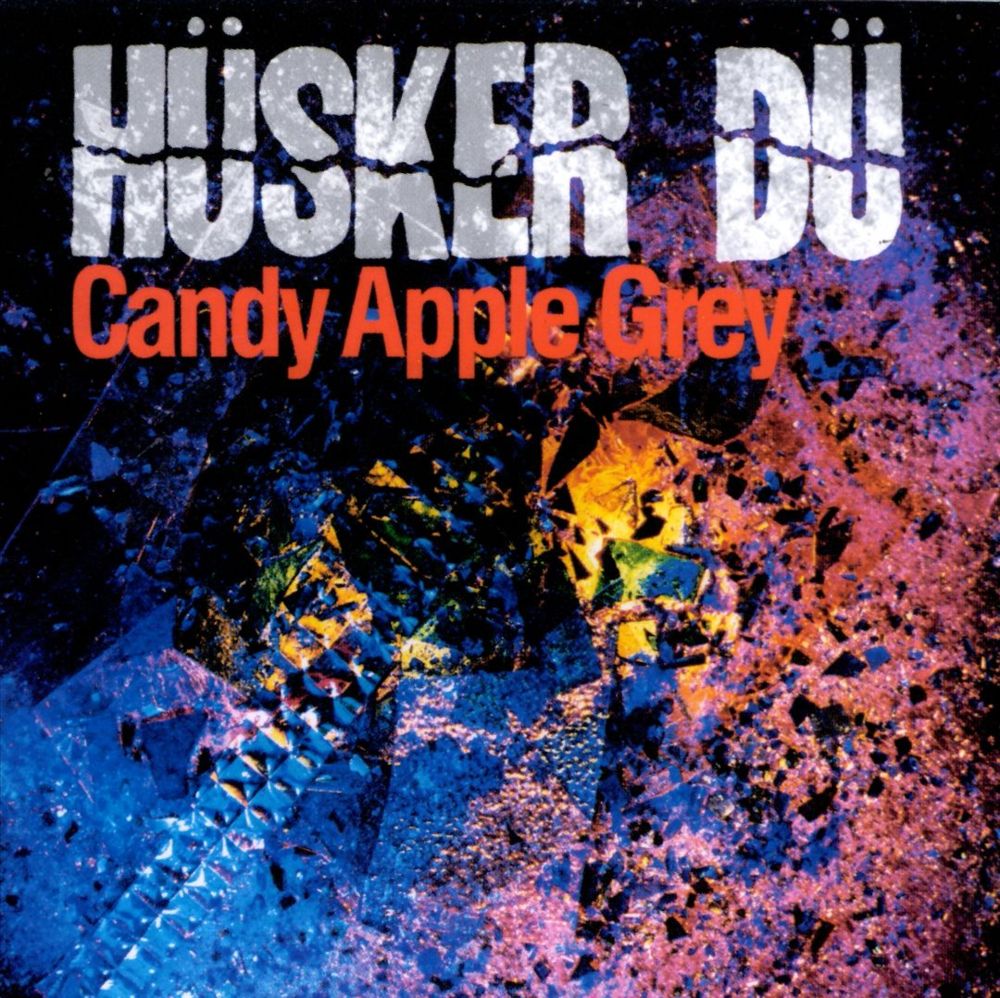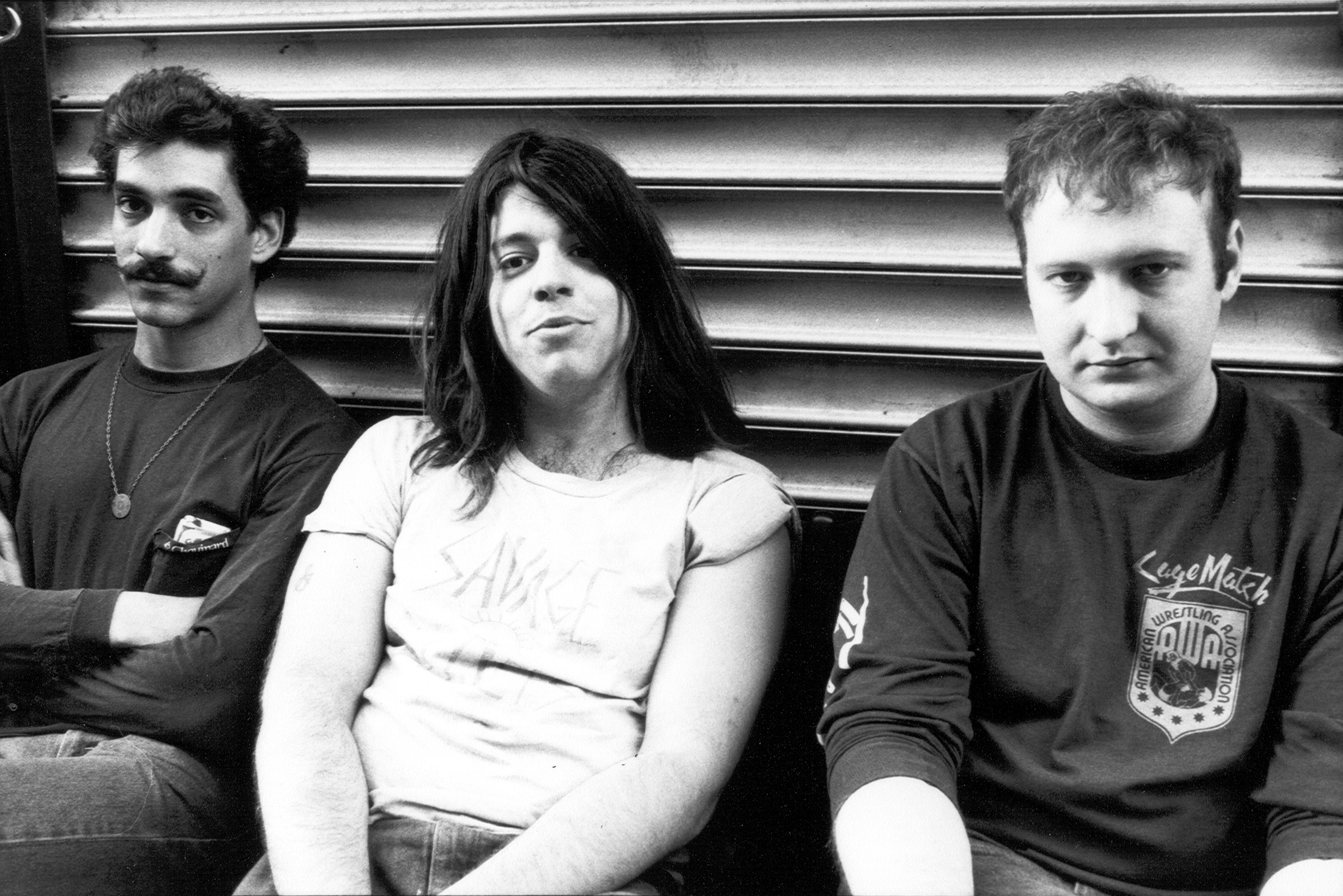This review of Candy Apple Grey originally appeared in the July 1986 issue of Spin. We are republishing it now in the light of drummer, songwriter, and vocalist Grant Hart’s passing.
Dü be Dü be Dü, as new next-door label-mate Hoboken Frank likes to say. The Hüskers have joined forces with the true hard corp(oration), a leap from indie salvation to major-label faith that’s often found bands scissored between their own uncompromising rock and a hard place (X marks the spot.)
For Hüsker Dü, the rite of passage comes at a fortuitous time. Their previous album, Flip Your Wig, found Minneapolis’s most powerful trio refining their pop trash to maximum intensity, all the while while realizing that encroaching stardom was bound to deliver mixed blessings. “No matter what I choose /I’m the one they want to use,” a bittersweet Grant Hart sang on the title cut.
With Candy Apple Grey, the Hüskers choose to choose. They still amp it up with the best of them, but such songs as “I Don’t Know for Sure” and “Dead Set on Destruction” seem more reassuringly familiar—almost nostalgic— than break-neck confrontations with life’s multi-contradictions. “Crystal,” which opens the album in a wash of white noise, retains a ferocity that finds Bob Mould howling wordlessly into a Sensurround chaos. Still, the band long ago served notice of its refusal to be defined by the frenzied conventions of such early classics as “Bricklayer” and “From the Gut.”
Like the backhanded compliment the album’s title implies, this music takes strength from contradiction. The Beatles’ “Ticket to Ride” is so effortlessly quoted in “Don’t Want to Know If You Are Lonely,” it’s ingrained in the song’s precision control, a melodic aside to let you know, yes, this is how they intend to play. Rather than def and dumb primeval ooze emerging from the hardcore’s paleolothic mud, Hüsker Dü are pretty self-aware.
Which is why, after Hart’s rousing “Sorry Somehow”—an upwardly mobile pop song even for these prototeen idols, dangling Hammond and all—the entrance of Mould’s solo acoustic guitar in “Too Far Down” is hardly out of context. The song’s unrelieved gloom isn’t lightened by a hint of irony. It’s hard to believe that Mould could lay his emotional life so nakedly on the line: “All I can do is sit and wonder if it’s going to end / Or if I should just go away forever.” The song’s chill starkness is matched by the melancholia of “Hardly Getting Over It,” another ballad of fear and loss, fear and loss, and reigned despair, all resting on a nailed bed of strummed guitars and metalflake piano.
“No Promise I Have Made,” Hart guarantees, speaking for the band, facing up to the inevitable, “you facing me betrayed.” Hüsker Dü fans know the only expectations belong to Hüsker Dü. “All This I’ve Done For You,” adds Mould simply. “Sometimes I don’t know why you want to try and help me.” Few performers have ever depicted the call-and-resonse between artist and audience in such unadorned couplets of existential need. Opposites attract.





